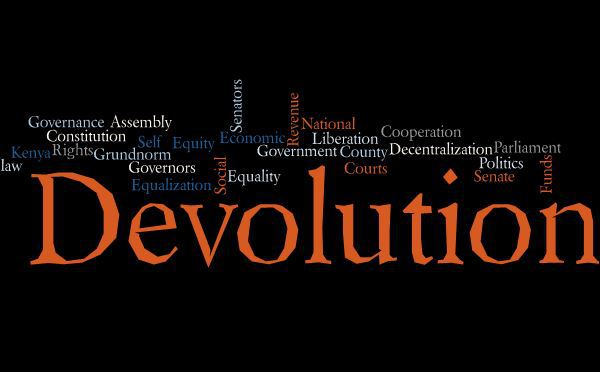Zimbabwe’s devolution agenda lacks citizens’ participation, further creating problems of ownership, responsibility, sustainability, and development priorities, an academic has said.
The country’s Constitution adopted in 2013 provides for devolution of power from Harare to the provinces but almost 10 years down the line that is still yet to be realised
The government is still dragging its feet on coming up with the enabling legislation while some constitutional provisions on devolution are being amended, something described by analysts as an attempt by the ZANU-PF government to further water it down.
What the government has done is allocate financial resources to local authorities for development without ceding any power to communities.
Presenting his paper Tuesday at a conference organised by civic society organisations in under the theme: “Citizen agency, accountability and democratic governance in Zimbabwe,” Zimbabwe Open University (ZOU) lecturer, Didmus Dewa, said the devolution implementation in the country leaves a lot to be desired
“We are quite aware that the 2013 Constitution speaks to the idea of devolution,” said Dewa.
“That being the case, is good but what is problematic is the absence of citizenry footprints in the devolution participation in Zimbabwe. If you look at Chapter 14 of the Constitution of Zimbabwe, it seeks to address issues to do with devolution. It gives power to local citizens to manage their affairs within their localities but that in comparison with what is obtaining, gives a challenge or a problem.”
He said the lack of citizen participation was rendering the whole process meaningless.
“Devolution is just about the transfer of decision-making power from the central government to the local people; that’s a layman’s definition of devolution,” explained Dewa.
“It is when power is ceded from the centre to the local people and our constitution speaks to this. Citizenry refers to all people living in a particular place collectively. My conclusion is that there is no meaningful participation of citizens in the devolution agenda.”
Once people are involved, Dewa said, they become responsible and once they are responsible, they own the processes.
He said Zimbabwe’s devolution process is in practice contested.
“What the people voted for and what is being done, is different,” he decried.
“The people thought that they were going to be very much in charge but what is obtaining is different. The State or central government is still in charge. The people of Gweru have to wait for Harare to decide the affairs of Gweru and yet when they voted in 2013 they thought they were going to be the ones who were going to decide their affairs, therefore there is the absence of Gweru’s voice in Gweru’s devolution process.”
He further decried: “What is happening is that the central government allocates money that is meant for devolution to local authorities and it does not end there. The central government tells the local authorities what to do with the money. In this relationship, between the central government and the local authorities there is no consultation of the citizenry. It is the interest of the state that is being carried out. The absence of provincial councillors to monitor all these processes is also a challenge.”

